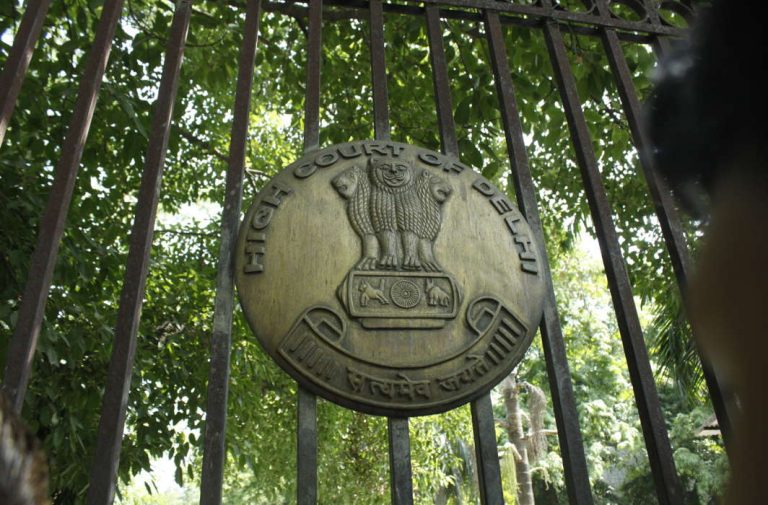
The Delhi High Court recently passed an order rejecting the plaint under order VII Rule 11, CPC, 1908 of an Indian National, employed in the Italian embassy raising the contention of the equity pay at par as per the article 157 of the Italian Presidential Decree No. 103 dated April 7, 2000. The Petitioner approached the Court to direct the Respondents to pay the full amount of the arrears of salary along with damages and equitable compensation.
The Defendant raised his argument in support of the section 86 of the CPC, 1908 which talks about the institution of a case against a foreign national only in the case of sanctioned accorded by the Central Government u/s 86 of Code of Civil Procedure, 1908. He contended that the Petitioner does not fall in any of the category under section 86, CPC, 1908 and the same is strong enough as ground for the rejection of the plaint of the Petitioner. The Petitioner supported his argument with the few case laws: VEB Deutfracht Seereederei Rostock (D.S.R Lines) A Dept. of the German Democratic Republic Vs. New Central Jute Mills Co. Ltd. & Anr and K.S Dhondy Vs. Queens of Netherlands and Anr. The crux of the mentioned judgments would be the importance of section 86 of CPC, 1908 wherein the protection has been granted to the foreign national against the frivolous litigation and the further emits that court may have the liberty to dismiss the suit at the very initial stage to fulfill the object of the section.
The learned counsel for Respondent, Advocate Jaiveer Shergill, put forward a contention that the suit is barred by limitation as the plaintiffs were about the alleged discrimination when they first entered into contract with the defendant.
The Learned Counsel for Plaintiff submitted that the scope of judicial inquiry in an order VII Rule 11 CPC application was limited to examining the statement in the plaint. He submitted for the present application, the court should assume all facts stated in the plaint to be true and hence, determine whether the plaint is barred by law. He further mentioned that Courts should not inquire into the validity of the decision of Central Government unless the permission was refused by the Central Government. He further supported his arguments with Article 154 and Article 157 mentioning that the Presidential Decree itself support their case strongly enough. He finally submitted that suit was not barred by limitation as the cause of action in the present suit was a recurring cause of action in as much as the discrimination subsisted till the date of filing of the suit in 2013.
The court after hearing both sides found merit in the pleas of the defendants-applicants that the power given to the Central Government must be exercised in accordance of principles of natural justice and in consonance with the principle that reasons must appear from the order. It further passed an order stating that although, section 86(6) of CPC, 1908 specifically stipulates that the Central Government before refusing permission shall give a hearing to the person making the request only, yet to save the constitutionality of the Provision, it shall have to be read to provide an opportunity of hearing to the foreign ruler, Ambassador and envoy also. It further added in an Order VII Rule 11 CPC application wherein only the averments in the plaint and documents annexed thereto have to be examined and believed to be true and correct and in the absence of Central Government in the present suit, the legality and validity of the sanction under Section 86(2) of CPC cannot be tested and/or examined.
The court recorded in the judgment that though the present suit is premised on Italian law, in particular the Italian Presidential Decree and the jurisdiction of a municipal Court is defined by the domestic law, yet in view of Article 154 which confers jurisdiction on the local forum to settle any dispute, this Court is of the view that it has the jurisdiction to decide the present suit. The court, however, denied the contention of the Respondent that the suit is being barred by the limitation as the same is based on a recurring cause of action. The court further records its opinion “In the opinion of this Court, the aforesaid Article 157 grants pay parity between citizens of host/local country employed by the defendants as it uses the expression “in a country all persons recruited to homogeneous category should draw equal salary”. Article 157 itself contemplates “the annual total CS (OS) 1352/2013 Page 20 of 20 base remuneration is fixed in the individual contract taking into consideration the local employment conditions, the cost of living and Surely, the cost of living of a local citizen and an Italian citizen would not be the same. In any event, the Italian citizens and citizens of host country locally employed are two different categories / streams”.
Hence, the court allowed IA filed by the defendants and the rejected the plaint to grant equal parity in salary to the petitioner.
—Furkan Ahmed

